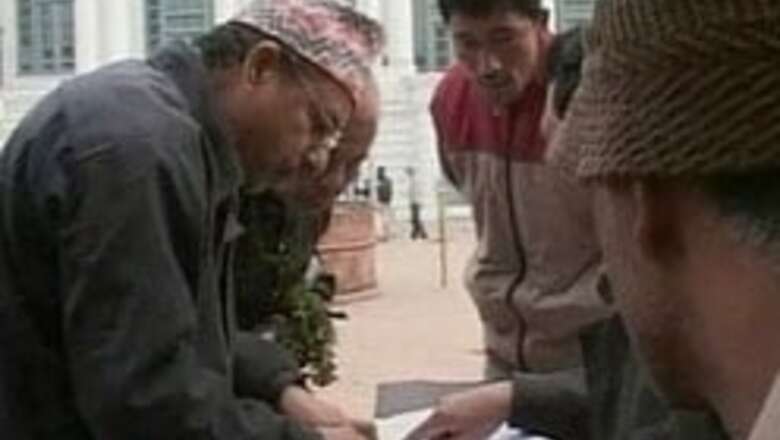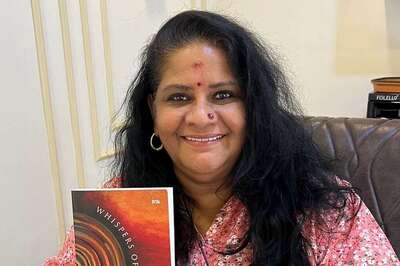
views
Kathmandu: Nepal's former communist rebels picked up more seats on Sunday as they extended their lead in early returns from elections that will shape the Himalayan nation's political future.
The Maoists, formally known as the Communist Party of Nepal (Maoist), had taken 44 seats out of 79 in constituencies where counting had been completed and were leading in most of the other areas where votes were still being tallied, the election commission said.
The traditionally powerful, centrist Nepali Congress was trailing with only 12 seats and the Communist Party of Nepal (United Marxist-Leninist) had only 14 seats, the commission said.
As the counting continued Sunday, two people were wounded in a gunfight between supporters of rival political parties in a village in the south.
Chief Government Administrator Kavilashi Panthi, in Siraha district, said it wasn't clear how many of the backers of the Communist Party of Nepal (United Marxist-Leninist) and Rastriya Prajatantra Party actually fired weapons, but two people were seriously wounded.
The injured had been taken to a nearby town for treatment and additional police had been sent to the village, Panthi said. He added that the situation remained tense there.
Siraha district is about 300 kilometers (190 miles) southeast of the capital, Katmandu.
On Saturday, returns showed the Maoists' leader, Prachanda, whose rebel nom de guerre means ''the fierce one,'' had won a seat representing Kathmandu.
''This victory is a command by the Nepali people to establish lasting peace,'' the 54-year-old former rebel leader told reporters after the result was announced. ''We are fully committed to the peace process and multi-party democracy and to rebuild this country.''
Complete results for the 601-seat Constituent Assembly are still a few weeks off, although officials say they should have a clear picture of what the assembly will look like later this coming week.
None of the parties who contested the vote - from the Maoists to centrist democrats to old-school royalists - are expected to win a majority.
But the Maoists strong early showing has surprised most observers, who before the vote had them placing third behind the country's traditional electoral powers, the Nepali Congress and the United Marxist-Leninists.
The election has been touted as the cornerstone of the 2006 peace deal with the Maoists, in which they gave up their 10-year fight to establish a communist state by force. The agreement followed weeks of unrest that forced Nepal's king to cede absolute power, which he had seized a year earlier.
The Maoists are still considered a terrorist organization by the United States.
''I want to assure the international community, especially India and China ... that we will have good relations with them and work to secure all cooperation for Nepal,'' Prachanda said.
Former US President Jimmy Carter, whose Carter Center sent 62 observers to monitor the election, described the election as one of the ''most profoundly important'' of the 70 he has witnessed because it marked the end of a decade of political violence and the probable transformation of Nepal from a Hindu kingdom to a democratic republic.
Scattered shootings and clashes that killed two people on election day and eight others in the days leading up to the poll did not deter millions of Nepalis from casting ballots in the country's first election in nine years.
Smaller parties made some gains. The Madeshi People's Rights Forum, a party that wants greater autonomy for southern Nepal, had six seats and the Tarai Madesh Democratic Party won one, the election commission said. The Nepal Workers and Peasants' party had two seats, it said.
King Gyanendra, who is set to lose his throne soon after the final election results are announced, said Sunday he was satisfied with the participation of Nepalese people in the polls.
''The enthusiastic participation of the Nepalese people in the Constituent Assembly elections, through which they have emphatically reiterated their firm resolve not to compromise the nation's existence, independence and integrity under any circumstance, is a source of satisfaction for us,'' he said in a brief message.
The major parties have already agreed to abolish the 239-year-old monarchy at the Assembly's first sitting.




















Comments
0 comment